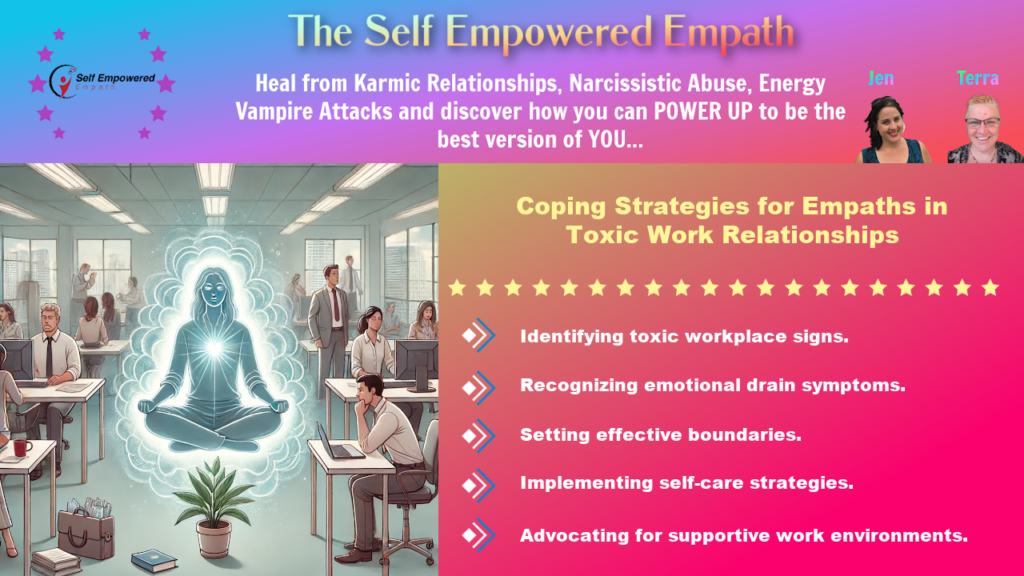
2. Recognizing Signs of Toxicity in the Workplace
For empaths, recognizing the signs of toxicity in work relationships is a critical first step in safeguarding your emotional well-being. Toxicity in the workplace often manifests through a series of red flags that can have a profound impact on your mental and emotional state.
High Turnover Rate
Frequent resignations and hiring can indicate an unhealthy work culture, often signaling deeper issues within the organization such as poor management practices, lack of employee recognition, insufficient growth opportunities, or a toxic work environment. High turnover rates disrupt team cohesion and can lead to decreased productivity and lowered morale among remaining staff. By addressing these underlying problems, companies can foster a more stable and positive workplace, ultimately retaining talent and improving overall performance.
Poor Communication
Lack of transparency, unclear expectations, and insufficient feedback can lead to significant challenges within a team or organization, resulting in decreased morale, reduced productivity, and an overall sense of frustration among members. This often creates an environment where team members feel left in the dark about their roles and responsibilities, struggle to understand the overarching goals, and fail to receive the constructive feedback necessary for growth and improvement. Effective communication strategies are essential to address these issues, promoting a culture of openness, clearly defined objectives, and consistent, meaningful feedback loops.
Negative Attitudes and Behaviors
Pervasive negativity, gossip, bullying, and harassment can create a toxic environment that affects everyone’s morale and productivity. This type of behavior often leads to increased stress, mental health issues, and a decline in overall well-being. When such negativity is allowed to flourish, it undermines trust and respect among colleagues, creating a hostile workspace where collaboration and communication fail to thrive. It is crucial for organizations to address these issues promptly and effectively to foster a positive and inclusive culture that promotes mutual respect and support.
Lack of Support
Inadequate support from management, lack of resources, and absence of mentorship create a challenging environment for employees to thrive, stifling innovation and growth, leading to decreased morale and productivity. This combination of factors makes it difficult for individuals to reach their full potential, ultimately impacting the overall success and competitiveness of the organization in the industry.
Unfair Treatment
Favoritism, discrimination, and inequitable workload distribution are pervasive issues in many workplaces, leading to a toxic environment where employees feel undervalued and demotivated. These problems can hinder productivity, morale, and overall job satisfaction, often causing high turnover rates and a lack of trust among team members. Addressing these issues is crucial for fostering a fair and inclusive work culture where everyone has equal opportunities to succeed and thrive.
Micromanagement
Overbearing supervision and lack of autonomy for employees can lead to a stifling work environment where creativity and innovation are hindered. This micromanagement approach not only demotivates employees but also results in decreased job satisfaction and productivity. Without the freedom to make independent decisions or contribute ideas, employees may feel undervalued and disconnected from the company’s goals. Furthermore, excessive supervision can create an atmosphere of distrust, where employees are more focused on meeting stringent oversight requirements rather than striving for excellence and growth. Over time, this can result in higher turnover rates and a loss of talented individuals who seek more empowering and trusting workplaces.
Blame Culture
Shifting blame instead of fostering accountability and constructive feedback serves only to create a toxic environment where individuals are more concerned with avoiding responsibility than with solving problems or improving processes. This detrimental behavior undermines team cohesion and hampers growth, as people become defensive and distrustful. In contrast, encouraging a culture of accountability and open communication promotes a supportive atmosphere where team members can learn from their mistakes, innovate, and work collaboratively towards common goals. By recognizing and addressing issues constructively, organizations can foster resilience, adaptability, and continuous improvement.
Unrealistic Expectations
Impractical deadlines, excessive workloads, and pressure to perform beyond capacity are creating an environment of constant stress and burnout among employees. This relentless demand to continuously achieve more in less time not only hampers productivity but also affects mental and physical health, leading to a cycle of declining morale and increasing dissatisfaction. The lack of adequate resources and support exacerbates the situation, contributing to a toxic work culture where employees feel undervalued and overworked.
Lack of Recognition
Inadequate acknowledgment and appreciation of employees’ contributions can lead to decreased morale and motivation, resulting in lower productivity and higher turnover rates. When employees feel that their hard work and dedication go unnoticed or undervalued, it can create a disengaged workforce, ultimately affecting the overall performance and success of the organization. Providing regular recognition, whether through verbal praise, awards, or incentives, is crucial for fostering a positive work environment and encouraging continuous improvement and collaboration among team members.
Burnout and High Stress Levels
Constant stress, anxiety, and exhaustion among employees can lead to decreased productivity, low morale, and higher turnover rates. It is essential for companies to prioritize mental health by providing resources such as counseling services, stress management workshops, and a supportive work environment to help employees cope with daily pressures. Additionally, encouraging regular breaks, promoting a healthy work-life balance, and fostering open communication can significantly alleviate the negative impacts of workplace stress.











